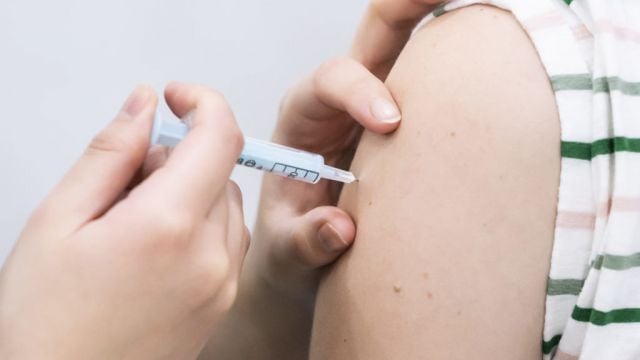Around 70 per cent of people admit they do not fully understand information surrounding the Human Papillomavirus (HPV), a recent study has found.
The survey illustrated "concerning trends around plateauing growth in awareness levels" of HPV, with 23 per cent of respondents saying they do not know how the virus is spread.
HPV - which is responsible for a number of cancers in both men and women and causes one in 20 cancers worldwide - is a family of very common and highly contagious viruses which transmit through any kind of sexual contact.
Just 6 per cent of those who took part in the survey correctly identified HPV as being extremely common in Ireland, representing a growth in awareness of only 2 per cent from last year's figures.
HPV infections usually clear up on their own, but if they do not, they can manifest as certain HPV-related cancers later in life.
Despite the fact that most people will become infected with a form of HPV in their lifetime, 54 per cent of respondents thought the virus is rare in Ireland and just 21 per cent said they believe it is likely that they have ever had HPV themselves at any stage.
Gender gap
The research, carried out by Behaviours and Attitudes on behalf of MSD Ireland, was conducted ahead of the National HPV Immunisation Programme in Ireland this autumn, offering free HPV vaccination to boys and girls in their first year of secondary school.
Optimistically, 78 per cent of parents said they are aware there is a vaccine to prevent HPV, but the research also found they had differing attitudes regarding HPV when it came to their daughters compared to their sons, despite the infection impacting both males and females.
While 86 per cent of respondents said they were worried about their daughters (under 18) coming into contact with HPV, the same sentiment was true for just 62 per cent when discussing their sons (under 18).
Just under one third said they believe males and females are at equal risk of HPV, while 55 per cent said girls and women were at higher risk and 10 per cent said they did not know.
Despite this discrepancy, 76 per cent said they agreed that both boys and girls should be vaccinated against HPV.
In 2020, the World Health Organisation (WHO) launched an initiative to eliminate cervical cancer - which is the only HPV-related cancer which can be detected early through screening tests - by focusing of prevention through HPV vaccination and screening, and treatment of pre-cancerous lesions.
We have it within our grasp to prevent around 400 cases of cancer caused by HPV infection each year in Ireland.
In Ireland, HPV infections caused up to 420 cancer cases (men and women) each year between 2010-2014, resulting in up to 130 deaths.
"The latest research shows that a large number of people still don’t fully understand HPV, and this is something which doctors and pharmacists can easily address with parents, providing them with factual information and advice for their son or daughter," GP Dr Phil Kieran said.
"HPV is preventable, and people need not develop complications because of HPV infection. Awareness building is an extremely important part in helping to prevent the spread of HPV and to potentially eradicate cervical cancer, which can incredibly become a reality for us in Ireland.
"The next few months are key to this, with our teens going back to school, parents of first year students will now receive consent forms relating to the vaccination of their teens," he added.
Also commenting on the survey's findings, the Irish Cancer Society's head of advocacy Rachel Morrogh said: "We want everyone to have the same chance of reducing their risk of cancer and to achieve this more must be done to increase awareness of the HPV vaccine and its benefits amongst people and communities where awareness or uptake is lower.
"We have it within our grasp to prevent around 400 cases of cancer caused by HPV infection each year in Ireland.
"High vaccination rates are one essential aspect of reducing HPV-related cancers. We must continue to work together and commit to a detailed roadmap that accelerates progress in significantly reducing these cancers in Ireland.
"With a target-based plan, Ireland can lead like other countries across the world in eliminating HPV-related cancers and diseases."
More information on HPV and the HPV vaccine can be found on the HSE website.







